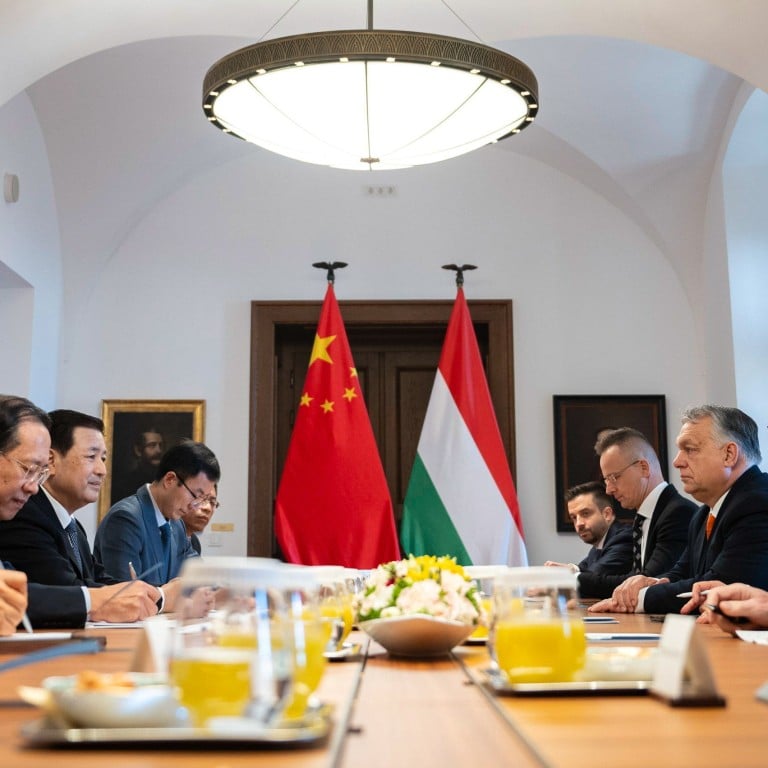
China and ‘good friend’ Hungary shore up policing and security ties
- Wang Xiaohong, China’s public security minister, and Viktor Orban underline stability as a basis for economic relations
- Big Chinese companies are beating a path to the central European nation despite EU concerns
According to a Chinese statement on Sunday, Wang told Orban that Hungary was “a good friend and companion who has stood the test of time”.
The Budapest Times quoted Bertalan Havasi, the prime minister’s press chief, as saying Orban told Wang that ties between Hungary and China were based on respect, “an otherwise dwindling commodity in international diplomacy”.
The two sides also stressed the importance of security and stability as a basis for the development of economic and trade ties, Havasi said.
BYD set to announce Hungarian electric vehicle factory
Hungary has been a Nato member since 1999 and a European Union member since 2004, but has been pursuing closer ties with China.
The central European nation was the first in the European Union to sign a belt and road memorandum with Beijing, which funded a high-speed railway between the Hungarian and Serbian capitals.
Orban, a five-term prime minister who first governed the country in 1998, was also the only leader of an EU member state to attend October’s belt and road forum in Beijing, hosted by Chinese President Xi Jinping. Russian President Vladimir Putin spoke at the event.
Since 2020, China has emerged as the biggest investor in Hungary.
Hungary is home to Huawei Technologies’ largest logistics and manufacturing base outside China despite European Commission warnings that the Chinese telecom giant poses a risk to EU security.
It will soon host Chinese carmaker BYD’s first European factory, and last year, China’s battery-maker CATL, announced that it would invest €7.3 billion (US$7.6 billion) to build a 100 GWh battery plant in Debrecen, Hungary’s second-biggest city.
During his visit in Budapest, Wang also held talks with Hungarian Interior Minister Sandor Pinter, who said bilateral cooperation was made possible “by the guarantee of security and stability, which are essential for further developing comprehensive strategic cooperation”.
Fears Chinese EV battery plant will damage drought-stricken Hungary
On his Facebook page, Hungarian Foreign Minister Peter Szijjarto said Chinese investment was “the key to the long-term growth” of the Hungarian economy.
“Europe faced the reality, the Chinese economy simply exceeded that of Europeans. It’s time to come to common sense and move to cooperation instead of the politics of isolation,” Szijjarto wrote on Friday, while posting photos of his meeting with Chinese vice foreign minister Ma Zhaoxu.
“We benefited a lot from our policy based on rational, mutual respect, because modern Chinese investments are the key to the long-term growth of the Hungarian economy.”

